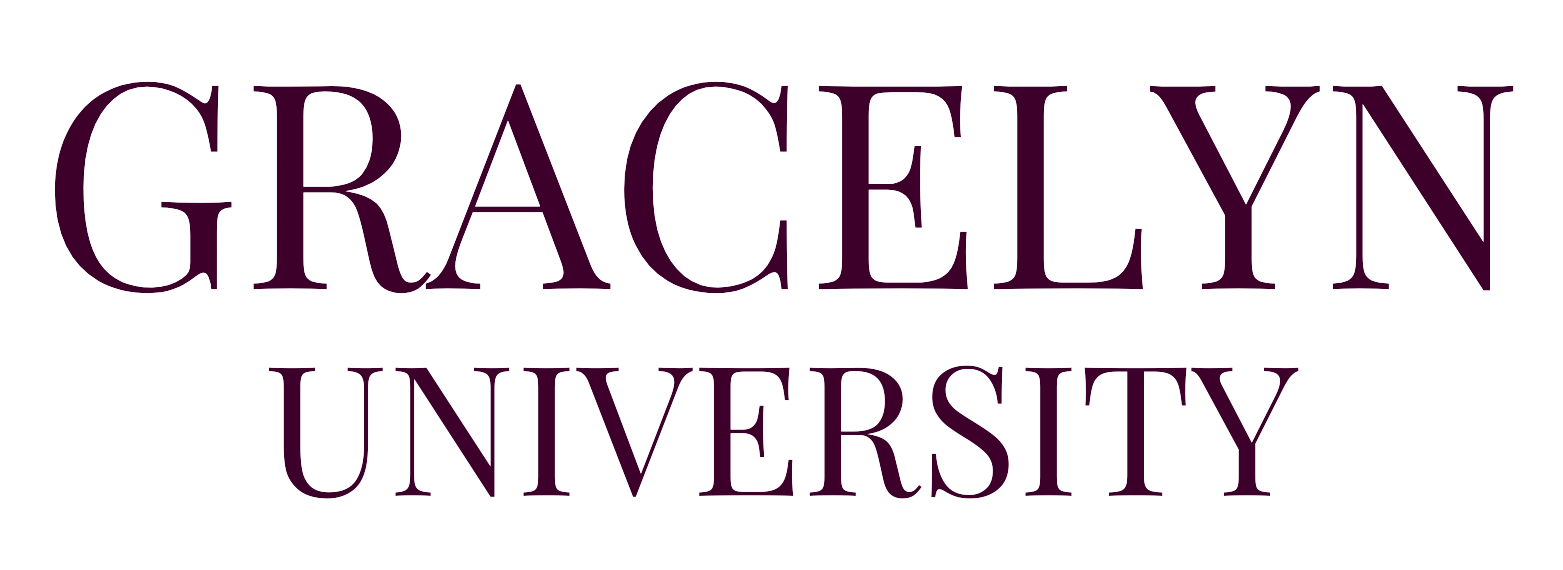Continuing enrollment in Gracelyn University requires adherence to the university’s standards of academic integrity. Many of these standards may be intuitively understood and cannot in any case be listed exhaustively. The following examples represent some basic types of behavior that are unacceptable:
- Cheating: using unauthorized notes, aids, or information when taking an examination; submitting work done by someone else as the student’s own; copying or paraphrasing someone else’s essays, projects, or other work and submitting it as the student’s own.
- Plagiarism: submitting someone else’s work and claiming it as the student’s own or neglecting to give appropriate documentation when using any kind of reference materials.
Plagiarism, whether done purposefully or unintentionally, includes copying or paraphrasing materials from study guides, textbooks, someone else’s writing, or any other source (published or unpublished). Any words, thoughts, or ideas taken from any other source must be properly documented according to an accepted style manual – that of the APA (American Psychology Association), version 7, or other guidelines as written in the course. Gracelyn faculty use Unicheck to check for plagiarism.
We strongly recommend that all students read this article on what plagiarism is and how to avoid it before beginning courses, so that they will not be subject to penalties for committing plagiarism in a course.
It is also plagiarism to submit an assignment in a class that is the same or substantially the same as one previously submitted for credit in another.
- Fabrication: falsifying or inventing any information, data, or citation; falsely claiming that documents or interviews were received from an organization when they were actually written by the student.
- Obtaining an Unfair Advantage:
- Stealing, reproducing, circulating, or otherwise gaining access to examination materials prior to the time authorized by the instructor.
- Unauthorized collaborating on an academic assignment.
- Retaining, possessing, using, or circulating previously given examination materials where those materials clearly indicate that they are to be returned to the advisor or to the Gracelyn University offices at the conclusion of the examination.
- The sale of completed assignments for the use of other students.
- Misrepresentation: forgery of official academic documentation; presentation of altered or falsified documents or testimony to a university office or official; misrepresenting one’s identity or that of another for academic purposes, such as taking an exam for another student; or lying about personal circumstances to postpone tests or assignments.
- Obstruction: conduct that interferes with other students’ ability to learn, such as deleting their computer files or disruption of class forums.
Disciplinary action may range from lowering a grade for a paper to dismissal from the program, depending on severity of the offense. Further details on this are given below.
